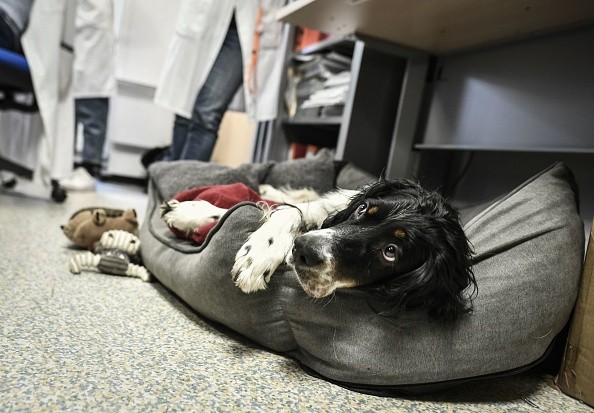Hundreds of dogs in several states across the US caught an unusual respiratory illness since mid-August, and veterinarians began to warn pet owners to take basic precautions.
Oregon, Colorado, and New Hampshire were among the states in the US that have recorded rising cases of respiratory illness, which have caused long-term respiratory disease and pneumonia.
Hundreds of Dogs Catch Unusual Respiratory Illness
The Oregon Department of Agriculture and the US Department of Agriculture's National Veterinary Services Laboratory reported more than 200 cases of the illness, which encouraged pet owners to reach out to their vet and make regular checkups so veterinarians could report the instances as soon as possible.
The departments have also reported that the unusual respiratory illness in dogs does not respond to antibiotics.
Furthermore, they have also revealed that the symptoms of respiratory illness in dogs include coughing, sneezing, nasal or eye discharge, and lethargy. The cases of pneumonia in dogs escalated quickly and made the dogs sick, lasting for 24 to 36 hours.
Veterinarian Dr. Mike Hutchinson said that the respiratory illness was still unknown to them.
"When that happens, you should see your veterinarian because we're going to treat those symptoms. And for viruses, there's really no good anti-viral on the market. However, we can support the symptoms sometimes by nebulizing them or giving them some support, fluids, things that they need," Hutchinson said.
According to Kurt Williams, director of the Oregon Veterinary Diagnostic Laboratory at Oregon State University, the dogs have also died without a clear way to define the disease, which made it hard to put a number on how many died from the unusual respiratory illness.

Basic Precautions to Avoid Respiratory Illness in Dogs
Along with the departments, veterinarians were continuously tracking down the cause of the illness. But as of the moment, they were encouraging pet owners to take basic precautions to keep their pets healthy.
Hutchinson advised isolating dogs from other dogs as much as possible as pets were more likely to catch the illness in places like kennels, dog parks, and groomers.
He said they have already required that all of the vaccines should be new and that they have a health certificate from their veterinarian. Williams agreed that pets should have up-to-date vaccines, especially those that protect against several respiratory illnesses.
David Needle, a senior veterinary pathologist at the University of New Hampshire's New Hampshire Veterinary Diagnostic Laboratory, has been investigating the unknown disease for almost a year, and he said that, luckily, there was no significant increase in dogs dying from the illness.
However, he still encouraged pet owners to decrease contact with other dogs. Needle has also extended research at the university's Hubbard Center for Genome Research to look at samples from dogs in Rhode Island, New Hampshire, and Massachusetts, and more would be coming from Oregon and Colorado.








